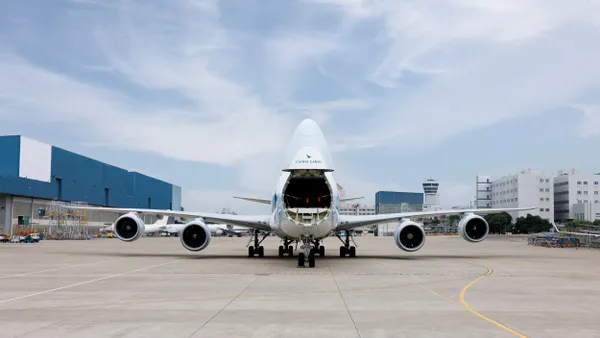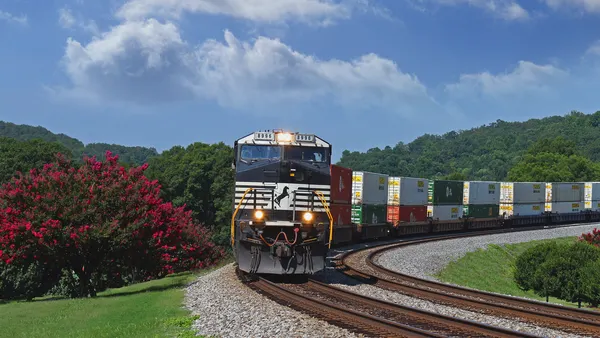Dive Brief:
- On top of renewed trade tensions with China threatening U.S. farmers' largest export market, interruptions in barge freight on the Mississippi River cost grain traders millions in the second quarter. High water levels led to barge freight being halted by authorities on and off in the second quarter and Archer Daniels Midland (ADM) was forced to close a Louisiana export facility, executives said on a recent earnings call.
- ADM CFO Ray Young put the value of weather-related freight delays on the Mississippi river at $40 million. Young predicted the second half of the year would be more stable, but further heavy rain could jeopardize that.
- Bunge CFO John Neppl put his company's loss closer to $13 million in profit in the second quarter. The freight disruption is adding to the uncertainty already experienced by the agriculture industry as a result of the tariff war, Neppl said. Bunge was somewhat more successful in offsetting lost profits with South American grain volume, posting $214 in net income in the second quarter after taking a loss during the same period last year. With much less volume originating internationally, ADM's net earnings fell from $579 million in the first quarter to $340 million in the second.
Dive Insight:
High water levels on the Mississippi have affected barge traffic, a crucial way grain is transported for export, since last year. In fact, Workboat put the 2019 flooding in the top ten flooding events ever. Snowmelt, persistent rain throughout the spring and a few strong summer storms caused a backlog of hundreds of barges, halting traffic and causing congestion once water levels normalized.
Furthermore, the quick rises and falls of recent weeks can cause damage to the riverbed. Workboat put the cost of Dredging the Mississippi River Ship Channel from Baton Rouge to the Gulf of Mexico at $75 million.
Climate change, which can create both abnormally high and abnormally low water levels also has a role to play in increasing the costs to keep barge freight flowing. The fourth National Climate Assessment released in 2018, predicts annual damages due to excessive flooding in the MidWest will exceed $500 million by 2050 (in 2015 dollars).
On August 19-23 the Army Corps of Engineers will conduct its annual low water inspection rounds to recommend policy changes and work projects, accompanied by four public meetings in Missouri, Arkansas, Mississippi and Louisiana.














